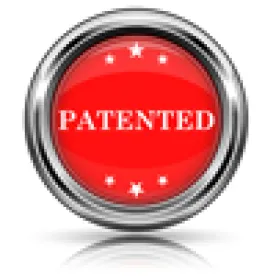The Supreme Court of the United States granted a petition for a writ of certiorari appealing a US Court of Appeals for the Federal Circuit en banc decision holding that a patent owner did not exhaust its US patent rights when it sold its patented toner cartridges to customers (1) in the United States subject to a post-sale single-use/no-resale restriction, and (2) outside the United States. Impression Products, Inc. v. Lexmark International, Inc., Case No. 15-1189 (Sup. Ct., Dec. 2, 2016) (cert. granted).
The Supreme Court’s resolution of this case will have significant implications for secondary markets for patented products and global commerce. Impression Products and several amici, including the United States, argue that if the Federal Circuit’s opinion stands, secondary markets for patented products will “grind to a halt” at substantial cost to consumers.
Lexmark is a printer manufacturer that makes and sells patented toner cartridges for its printers to customers within and outside the United States. Lexmark offers toner cartridges to consumers subject to a patent license that has a single-use/no-resale requirement. Impression Products is a remanufacturer of toner cartridges that acquires spent Lexmark toner cartridges sold in the United States and internationally, refurbishes them and sells them for use with Lexmark printers in competition with new and refurbished cartridges sold by Lexmark.
In 2010, Lexmark brought suit against Impression Products and other remanufacturers for patent infringement. Lexmark contended that Impression Products infringed Lexmark’s patents because Impression Products contributed to the breach of the single-use/no-resale requirement of the purported patent license that arose from the sale of toner cartridges to consumers. Impression Products moved to dismiss Lexmark’s claims on the grounds that Lexmark exhausted its US patent rights in the cartridges by its initial sales of cartridges from Lexmark to distributors, which in turn resold to consumers.
The district court held that the patent exhaustion doctrine barred Lexmark’s patent infringement claims against Impression Products regarding toner cartridges that were first sold by Lexmark in the United States, concluding that to the extent Mallinckrodt held that post-sale use restrictions precluded patent exhaustion after an authorized sale, it was overruled by Quanta. However, the district court also held that Lexmark did not exhaust its US patent rights in those cartridges that Lexmark initially sold abroad.
Both parties appealed. The Federal Circuit heard the case en banc and held that neither the domestic nor the foreign sales had exhausted Lexmark’s patent rights in the toner cartridges.
In granting cert, the Supreme Court noted that the patent exhaustion doctrine, also known as the “first sale doctrine,” holds that “the initial authorized sale of a patented item terminates all patent rights to that item.” This case presents two questions of great practical significance regarding the scope of this doctrine on which the en banc Federal Circuit divided:
1. Does a “conditional sale” that transfers title to the patented item while specifying post-sale restrictions on the article’s use or resale avoid application of the patent exhaustion doctrine and therefore permit the enforcement of such post-sale restrictions through the patent law’s infringement remedy?
2. In light of the Federal Circuit’s decision in Kirtsaeng v. John Wiley & Sons, Inc., which applied the first sale doctrine to copies of copyrighted works lawfully made abroad and held that the common law doctrine barring restraints on alienation that forms the basis of exhaustion doctrine “makes no geographical distinctions,” does a sale of a patented article that takes place outside of the United States and is authorized by the US patentee exhaust the US patent rights in that article?




 />i
/>i

